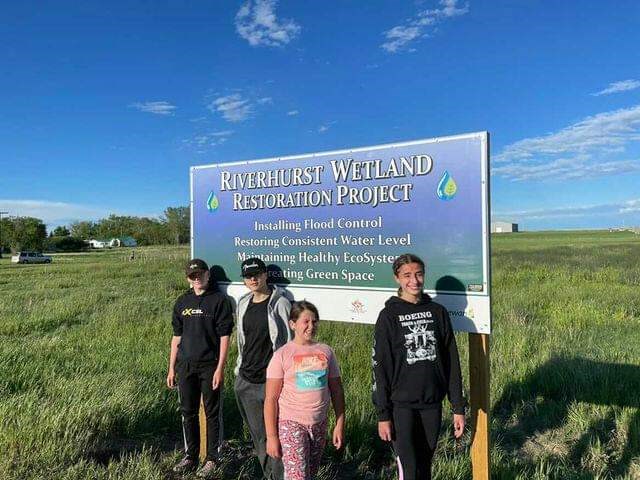A ceremony on April 5 at the Saskatchewan Urban Municipalities Association (SUMA) convention in Regina recognized the ongoing work at the Riverhurst Wetland Restoration Project as the first place winner of the 15th Saskatchewan Municipal Awards (SMAs).
The SMAs “(celebrate) the excellent and innovative practices of Saskatchewan’s municipal governments.” They also provide a best practices library where leaders can learn about successful past projects and what those projects did differently in order to succeed.
The SMAs are managed by SUMA, the Saskatchewan Association of Rural Municipalities (SARM), and the province’s Ministry of Government Relations.
The Riverhurst Wetland had been steadily declining after years of lower-than-average rainfall and become unable to support its normal population of waterfowl and other wetland species. According to a Village of Riverhurst media release, the wetland was a “parched, weedy eyesore.”
A team of local Communities in Bloom volunteers secured funding from Environment and Climate Change Canada’s Environmental Damages Fund to restore the wetland’s ecosystem.
The Environmental Damages Fund is supported by monies received from voluntary payments, court orders, and fines on polluters. The money is then directed to projects that will benefit Canada’s environment.
In 2018, development began to restore the wetland’s water levels. A corresponding goal was to build a flood-control system to protect the area and surrounding properties when heavy rain or spring snow-melt becomes overwhelming.
Prairie wetlands are essential ecosystems, acting not only as important habitats for native species but as a filter for watershed areas. They contribute to wildlife diversity, mitigate the effects of both droughts and floods, capture carbon dioxide from the atmosphere, and help regulate the local climate.
More than 500 trees have been planted as part of the project. A drip irrigation system was installed to water those trees, and a nearby nursery will continue restoring and diversifying the tree population.
Work this year will provide wheelchair-friendly pathways, native pollinator plantings, educational trailside signs, benches, and a viewing platform so visitors can appreciate the wildlife benefitting from the wetland.
Once the wetland basin is deepened and the maximum water level is achieved, the much-needed overflow/drainage system will be constructed.
“We are thrilled to be recognized by SUMA and SARM through this Municipal Award,” said Penny Gustafson, the project lead. “We were so fortunate at almost every stage in planning the project to have people step forward and offer time, materials, or expertise to help. We want to share this award with each of them. They made it possible.”
The project has been supported by an expanding group of individuals, businesses, and organizations. The SMA judges especially noted the level of collaboration and cooperation the project has achieved as the key to its first-place win.




